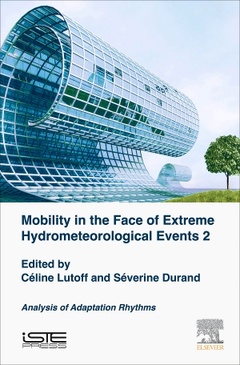Description
Mobilities Facing Hydrometeorological Extreme Events 2
Analysis of Adaptation Rhythms
Language: English
Keywords
270 p. · 15x22.8 cm · Hardback
Description
/li>Contents
/li>Readership
/li>Biography
/li>Comment
/li>
Mobilities Facing Hydrometeorological Extreme Events 2 covers our need to understand how the interaction of hydro-meteorological, social and development dynamics combine to bring improvement to or a worsening of both mobile and immobile exposure. The book provides a summary of the interdisciplinary work done over the past ten years. Residential mobility?the way in which the occupation of flood zones evolves over time?and its resulting immobile exposure are also at the heart of this work. In addition, the book explores how climate change and its relation to fast floods in various regions of the world, especially the Mediterranean, is creating extreme events.
Part 1: Socio-hydrometeorological rhythms 1. Rhythmicity of adaptation to floods: physical cursors for the analysis of the action 2. Institutional Memory of Hazard 3. Pace of political decisions in the face of fast floods at the local level 4. Rapid flooding, revealing specific interactions between residential and daily mobility?
Part 2: High impact event: emergence and irreversibility 5. Introduction: notions of emergence and irreversibility 6. High impact events, is a socio-hydrometeorological characterization possible? 7. Misfortune groups: life cycle and mass rise 8. High and low frequency exposure 9. Conclusion: contributions on the concepts of emergence and irreversibility
Séverine Durand, an environmental sociologist, defended a thesis in 2014 at Aix-Marseille University, France, on living practices in flood zones. During her four years working towards her postdoctoral thesis, she contributed to the MobiClimEx project, proposing a socio-anthropologic approach to mobility facing flash floods.
- Provides a comprehensive understanding of residential and daily mobilities in extreme hydrometeorological situations
- Updates on mobility adaptation cycles in the face of extreme hydro-meteorological events




